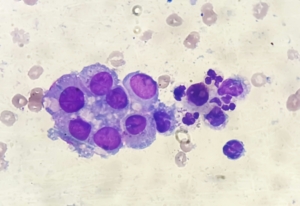
Is Europe truly ready for a bioeconomy?
Bioeconomy is the new health, and that is official. You only have to look at all the planning for Horizon 2020 and all the big words coming out of politicians at national and European levels to see that. But is Europe really ready or willing to embrace what it will take to replace existing technologies with new, bio-driven ones?
Let’s look at one example: biofuels. We’re talking about a sector where the global players in fuel production and oil supply are not bit players. They dominate the global economy, and sit at the right hand of presidents and prime ministers. None of these organisations have made a significant shift into biofuels. A fraction of the money spent on discovery programmes transferred into bio-fuel production would revolutionise global production and supply. But do you think that they are going to make it easy for other organisations to change policy and start eroding market share?
There is also no escaping the fact that new technologies will need significant public funds to create a platform from which to grow. They are not going to make it on a purely commercial basis. Opponents already harp on this, forgetting the massive subsidies disguised or otherwise that other energy industries have soaked up over the years. Solar panels are the perfect example here. Look what happened to the sector when subsidies were cut by cash-strapped governments.
Are European governments going to create this funding? It will have to be big, sustained and commit to a new energy platform over others. Interestingly, biofuel production from crops will have to take place close to the source of the crops. The economics don’t add up to ship carbon sources long distance, so you are producing locally for local consumption. That changes the game for energy production, turning it from a global market into a national one, which makes for interesting prospects in Europe. Will we invest in national production infrastructure and realign our agricultural production to supply facilities? This goes far beyond nice words about reducing dependence on fossil fuels. It requires wholesale commitment.
It works in economies with massive crop waste supplies and little or no domestic oil/gas industry. This could point to regions other than Europe as the future for biofuel production. And the irony is that these countries will embrace GM crops that improve fuel production from crop waste, where Europe is still having hissy fits about potatoes for starch production.
This could be a revolution in Europe, but we will need to seize it with both hands and make major changes to the agricultural production system across all countries, expanding farm to fork to include farm to fuel-tank. Think we can handle that?


 Unsplash+
Unsplash+
